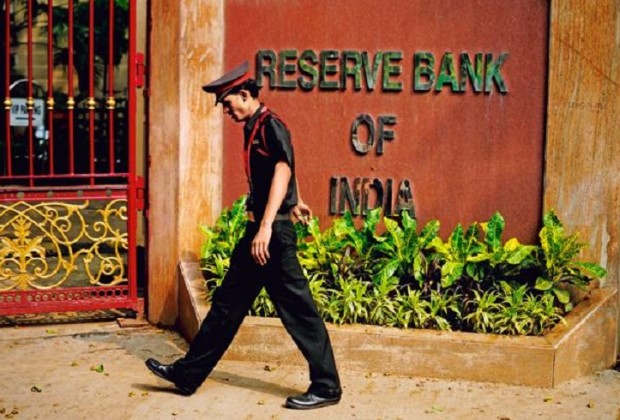Latest Posts
-
Finance 0
Strategy Cutting Losses
Whether you are Warren Buffet, Carl Icahn or Bill Ackman cutting losses is the hardest thing to do in Financial Markets these days. (Video length 00:09:03)...On February 15, 2016 / By Kurt Osterberg -
Finance 0
Draghi Investigates Killing The €500 Note: War On Cash Or War On Money Laundering?
The ECB recently launched a review of the €500 bill. In all likelihood, the €500 bill is about to vanish. Is this a first step in a war on cash or is this a war on money laundering? ECB president Mario Draghi says Review of €500 Bill Not a War on Cash. “The 500-euro note and this objective of limiting cash have nothing to do” with each other, the ECB president told European Union lawmakers in Brussels on Monday. “There is a pervasive and increasing conviction in world public opinion that high-denomination bank notes are used for criminal purposes.” “The 500-euro note is being viewed as increasingly an instrument for illegal...On February 15, 2016 / By Kurt Osterberg -
Finance 0
What Have We Not Learned Since 2008?
Paul Krugman has a post up highlighting some of the lessons we’ve learned since 2008. He’s using a Liquidity Trap model, which, regular readers know I’ve been very critical of (see here and here for some exciting reading on this).* But I wanted to highlight a different point – what have we NOT learned since 2008 which is still holding us back: The money multiplier myth is still rampant. Unfortunately, Paul Krugman’s Liquidity Trap model perpetuates this myth. This results in the view in that banks are choosing to hold onto reserves rather than lend them out. Of course, this is completely wrong as I’ve highlighted time and t...On February 15, 2016 / By Kurt Osterberg -
Finance 0
Peddling More “Recession” Fiction
We are sure this is nothing to be worried about – and is likely just “transitory” – but just in case, here is some more recession-fiction to peddle… Yet another weekly cut in forward earnings estimates for US equities… Source: @Not_Jim_Cramer But it can’t be a recession, right? Think of all those bartender and waitress jobs we are “saving or creating”… Source: @Not_Jim_Cramer With G10 macro-economic data suffering the worst start to a year in at least a decade, we are sure it’s nothing… just buy FANGs, lever up Biotechs, oh, and bank stocks are below book value s...On February 15, 2016 / By Kurt Osterberg -
Finance 0
E The Daily Shot And Data – February 15, 2016
We start with some observations on the latest developments in the global credit and rate markets (from Merrill Lynch, Citi, CS, Morgan Stanley and others). Bank Credit 1. Bank CDS spreads are catching up with bank bond spreads which have been widening since last summer. This feels overdone – the US banking system is the healthiest it’s been in years (even as returns on equity soften). Source: BAML 2. Related to the above, here is the share price to book ratio over time for the major US banks. The current environment is NOT 2008 or even 2011. Source: @ForbesInvestor, h/t Jake 3. Deutsche Bank’s newest bondholders are unhappy...On February 15, 2016 / By Kurt Osterberg -
Finance 0
Beware Of 3 Types Of Investment Risk
“Is it risky?” is one of the first questions you should ask about a new investment. Everyone wants investments with low risk and high returns, but it’s not always realistic. And most importantly, we all have a different feeling about risk. A great way to test whether your level of risk is appropriate is whether you sleep well at night! If you don’t have the tolerance for risk necessary to hold certain types of programs, don’t invest in them… no matter how much pressure you feel from the investment salesman. When examining a new idea, consider these three risk categories: Business risk –This is the potential loss of value to a st...On February 15, 2016 / By Kurt Osterberg -
Finance 0
Central Banks Fool The Markets Again, Buy A Few Weeks Of Calm
Over the weekend, the following happened: China’s exports and imports fell by 11.2% and 18.8%, respectively, numbers which, for a trading power, are nothing short of apocalyptic. Japan’s Q4 GDP shrank at an annualized rate of 1.4% which, for a country that had spent the previous three years borrowing and printing record amounts of new currency, is an extraordinary admission of failure. And US allies Turkey and Saudi Arabia appeared to be invading Syria, putting them — and by implication the US — in direct confrontation with Russia. This combination of disturbing trends and events would, you’d think, produce a dark and chaotic openin...On February 15, 2016 / By Kurt Osterberg -
Finance 0
Time To Buy Cyber Security ETFs On Decent Q4 Results?
Though the cyber security industry has lost its momentum in the past several months, partially due to the weakness in the broad technology sector, it is poised for exponential growth in the coming years in the face of increasing cybercrime and the need to protect against these threats. According to Gartner, global security spending will increase 4.7% year over year to $75.4 billion in 2015 with some analysts projecting the global market to grow from $77 billion in 2015 to $170 billion by 2020. The Q4 earnings reports of several industry players reflect this trend as most of them have beaten our earnings and revenue estimates with an encourag...On February 15, 2016 / By Kurt Osterberg -
Finance 0
Common Mistakes Most Investors Make
Individuals are consistently promised that investing in the financial markets is the only way to financial success. After all, it’s so easy. Financial pundits across the country state the one simply buys a basket of mutual funds and they will make 8, 10 or 12% a year. On a nominal basis, it is true that if one bought an index and held it for 20-years, they would have made money. Unfortunately, for most, it has not worked out that way. Why? Because no matter how resolute people think they are about buying and holding, they usually fall into the same emotional pattern of buying high and selling low. Investors are human beings. Human beings ...On February 15, 2016 / By Kurt Osterberg -
Finance 0
Deranged Central Bankers And Their Consequences
It is now self-evident to any sentient being (excludes CNBC shills, Wall Street shyster economists, and Keynesian loving politicians) the mountainous level of unpayable global debt is about to crash down like an avalanche upon hundreds of millions of willfully ignorant citizens who trusted their politician leaders and the central bankers who created the debt out of thin air. McKinsey produced a report last year showing the world had added $57 trillion of debt between 2008 and the 2nd quarter of 2014, with global debt to GDP reaching 286%. The global economy has only deteriorated since mid-2014, with politicians and central bankers acceleratin...On February 15, 2016 / By Kurt Osterberg
Top Posts
-
 The Importance for Individuals to Use Sustainable Chemicals
The Importance for Individuals to Use Sustainable Chemicals
-
 Small Businesses: Finding the Right Candidate for the Job
Small Businesses: Finding the Right Candidate for the Job
-
 How to Write the Perfect Thank You Letter After Your Job Interview
How to Write the Perfect Thank You Letter After Your Job Interview
-
 3 Best Large-Cap Blend Mutual Funds For Enticing Returns
3 Best Large-Cap Blend Mutual Funds For Enticing Returns
-
 China suspected in massive breach of federal personnel data
China suspected in massive breach of federal personnel data












